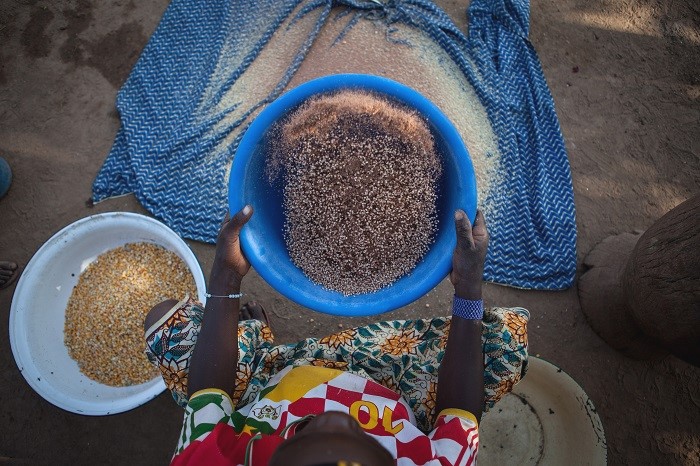The issue of employment in Ghana remains a critical development issue. Unemployment in Ghana especially among the educated youth appears to have deepened despite consistent growth in the Ghanaian economy. For example, although Ghana has experienced an average economic growth in the last twenty years, unemployment continues to soar within the same period.
According to the Media Foundation for West Africa, a non-Governmental organisation, Ghana’s representatives in the Sustainable Development Goals (SDGs) negotiations at the UN identify a number of factors that may be responsible for this challenge. According to the statement made by the Ghana at the fourth Session of the OWG, youth development is one issue that countries cannot afford to do away with. In the specific Ghanaian context, a number of critical interventions were highlighted.
With the job unfinished for millions of people, we need to go the last mile on ending hunger, achieving full gender equality, improving health services and getting every child into school. Now we must shift the world onto a sustainable path. The Global Goals aim to do just that, with 2030 as the target date. Ghana needs to be in a good position (Human Resource Capacity, Policy, and Infrastructure) to aid the implementation and achievement these Goals.
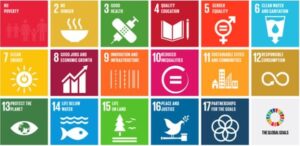
In Ghana today, unemployment constitutes perhaps the biggest social issue confronting our country, a situation which has been worsened by the turning out of many unskilled graduates from our Schools.
The secondary and tertiary education has not been able to turn out the relevant middle level skilled human resources needed for the industrialization of the country even as large numbers of people, including school drop-outs, continue to throng our cities for non-existing jobs, ending up as head porters or “Kayaye” and “shoe-shine boys and girls”.
This army of unemployed youth often engages in undesirable immoral behaviours like prostitution and armed robbery. To stem this tide of affairs, we recommend that the State turn some of the community secondary schools currently under construction into Community Vocational and Technical schools and continue to equip and resource the existing Vocational and Technical Institutes in the country. Parents Guardians should also encourage their wards to enroll in these schools.
While the idea of Technical Universities is good, care must be taken not to rush the proposal through without doing the necessary due diligence to ensure that the aim of the exercise will be achieved.
Perhaps, the proposed Long-Term Development plan is a great opportunity to get this policy and programme articulation right. The Laity who are policy makers on education delivery are called upon to work with their co-workers to make Christ’s love felt here.
Poverty
The hunger/poverty cycle is a difficult one to break, but that is necessary if we want to live in a world where everyone has the ability to fulfill their potential. Did you know there are over 870 million people who are hungry in the world at this exact moment?
The kind of hunger that stops a body being able to work the hours that it needs to, that stops a brain being able to concentrate in class, that stops a person living in poverty being able to lift themselves out of it. This goal will not only make sure everyone has enough food, but that we can make sure it is nutritious and sustainable to grow.
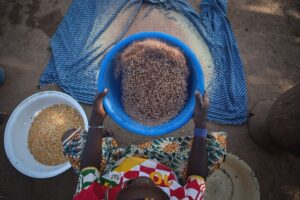
Poverty is a direct consequence of unemployment. Every Ghanaian must be alarmed at the abject poverty that stares at us everywhere in the cities, towns and villages. Regrettably, various poverty-reduction interventions such as the Livelihood Empowerment Against Poverty (LEAP), Youth Enterprise Support (YES) and the like, though commendable, have not yielded the desired results.
It is my strong conviction that policies and strategies aimed at reducing poverty must be pragmatic, realistic and home-grown. Over-reliance on donor-driven or directed programmes must be cut to the barest minimum. The resolve of the global community to bring extreme poverty to an end must challenge Ghana to work hard to achieve the new Sustainable Development Goals (SDGs) at an earlier timeline before 2030.
Education
Education is repeatedly highlighted by senior government officials on various platforms related to the post-2015 development agenda and was furthermore identified as a core priority issue in the UN report of the national consultations on SDGs. While Ghana has made substantial improvements in its educational sector particularly in the area of access to basic education, serious challenges remain at the tertiary level that require urgent action.
There is an unchanging position that it is the inalienable right of parents and guardians to choose schools for their wards. The Ghana Catholic Bishops’ Conference (GCBC) has over the years reaffirmed their conviction that it is not the right of a computer, programmed by a prone-to-corruption human being, to choose schools for our students. This is why the Bishops continue to appeal to Government to abolish the Computerised School Selection and Placement System (CSSPS) and replace it with a more workable and transparent version.
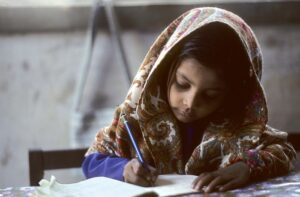
Unit Schools have been pivotal in quality education delivery in Ghana. However, successive policies in educational reforms in recent times have systematically sidelined the Educational Units making them ineffective. Because of this, the Ghana Catholic Bishops’ Conference and other Religious Bodies have for many years engaged the State to come out with clear policies with regard to the Partnership Agreement which has always existed between the Religious Bodies and the State in Education delivery. The 2021 Communique of the catholic Bishops issued on November 12 captures that again.
The Catholic Bishops and the Christian Council have over the years made calls on Government to be transparent in the on-going policy considerations on education reforms. The also urged that action be expedited on the formalization of the Partnership Agreement on Education, submitted by the Religious and other Bodies whose Schools are in the public system. “We call on the Laity to see the benefits of the Unit Schools and to commit themselves to their effective management as the contribution of Religious Bodies towards quality education delivery in Ghana,” the two Bodies added in a joint Statement few years ago.
Urbanization
Urbanization remains a growing challenge in developing nations around the world. In Ghana, the challenge appears to be reaching alarming proportions resulting in the near exponential growth in slum areas particularly Accra.
In her address at the national dialogue held on SDGs in April 2015, Ghana’s former Minister for Fisheries, Ms. Shirley Ayittey, expressed the view that urbanization is a key challenge that must receive priority attention in both the SDGs and in Ghana’s development framework.
She argued that not only does urbanization exert extreme pressures on the State to provide and improve the quality of social amenities in cities; but that meeting that challenge itself means that invariably very little of available national resources are committed to developmental needs in rural areas, a situation that propels the phenomenon of rural-urban migration in Ghana. In this sense, addressing the challenges associated with the growth in urban populations must be seen as a necessary aspect of promoting equitable development in the country.
In their Communique issued on November 13, 2015, members of the Ghana Catholic Bishops’ Conference stated that “The increasing urbanization of Ghana has brought in its wake the problem of “streetism”.
In effect, children who should be in the classrooms are found loitering and/or hawking on the streets of our towns and cities. According to the Ghanaian Bishops with increased urbanisation, the practice of prostitution is on the ascendancy while the HIV/AIDS pandemic is still rampant in some parts of the country, particularly, in cities. There are cases of armed robbery attacks in our cities. Even though statistics show that such cases have gone down, we think that there is still more room for improvement in this area.
The problems relating to urbanisation also include the fact that urban poverty has increased over the last few years compared with rural poverty. These problems relating to urbanisation may seem daunting but the Bishops feel they are guided by faith and hope that united as one people we can surely surmount these formidable challenges.
The Environment and Climate Change
According to the Statement presented by Ghana in the first OWG session in March 2013, climate change is one of the issues that hinder the development of developing countries and thus deserving of adequate attention in the post-2015 framework. In Ghana, increasing drought and perennial flooding has severe consequences especially in food-producing centres of the three Northern Regions of the country.
Closely linked to the health of the nation is the issue of the care of the environment. Time and again, it is regrettable to note the persistent pollution of our water bodies, the littering of plastic waste everywhere, the careless felling of trees in the forests and savannah area and the rampant illegal mining (galamsey) operations in towns and villages.
Religious leaders in Ghana have always called on Ghanaians to rise up against this indiscriminate destruction of the environment and water bodies. The authorities charged with protecting the natural resources have also been charged to be up and doing.

Recently, the Ghana Catholic Bishops’ Conference (GCBC) firmed-up its commitment to plant one million trees during this year’s raining season to support government’s GREEN GHANA Project announced in April 2021 to plant five million trees in 2021 and on November 24, 2021 also launched a five-year Action programme on Laudato Si on care of our common home.
As part of its commitment, the Ghanaian Bishops in the June 7 Statement encouraged all Ecclesial Communities at the Diocesan and Parish levels as well as Societies in the Church to take concrete actions towards planting trees to achieve the GCBC’s one million trees target of the Church’s support to the GREEN GHANA project.
Health
In both the report of the UN-led national consultations on the SDGs and the recently concluded stakeholders’ discussion on the SDGs, health was identified as priority development concern for Ghana.
Despite some progress in improving access to health services, principally through the introduction of the National Health Insurance Scheme (NHIS), substantial challenges remain in delivery of quality health care in Ghana. Consequently, infant, child and maternal mortality rates remain very high in Ghana, while preventable diseases like malaria continue to contribute significantly to child mortality.
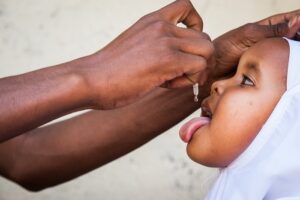
Another priority issue relates to localising the SDGs. According to several key stakeholders, government officials and the UN representative, localization of the SDGs must be prioritised in order to promote citizens ownership and facilitate successful implementation.
It is considered important that the SDG indicators being developed are adjusted to the national context to make the goals and targets relevant to Ghana. To ensure successful localisation, sufficient public education is deemed highly important in order to generate mass support for the SDGs and for particular policy actions arising.

